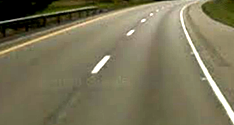PennDOT Announces Two 70 mph Pilot Locations
MIDDLETOWN — Pennsylvania moved ahead with steps to make travel more efficient today as the Pennsylvania Turnpike activated its 70 miles per hour speed limit from Blue Mountain (Interchange 201) to Morgantown (Interchange 298) and PennDOT announced it will launch 70 miles per hour pilot projects on a pair of interstates next month.
“As we increase the speed limit on the Pennsylvania Turnpike, motorists need to increase their restraint behind the wheel accordingly,” said Turnpike Chief Executive Officer Mark Compton. “Remember, even though we’re increasing the speed limit, motorists still must obey the law and drive safety. After all, 70 miles per hour is the maximum speed, not the mandatory speed.”
The Turnpike’s new 70 miles per hour signs were put in place yesterday; it took Turnpike maintenance employees about six hours to switch out 35 speed-limit signs along the 100-mile stretch.
Also today, State Transportation Secretary and Turnpike Commissioner Barry J. Schoch announced that beginning the week of Aug. 11, PennDOT plans to begin piloting a 70-miles per hour speed limit on two interstates:
- 88 miles of Interstate 80 from Exit 101 (DuBois) in Clearfield County to mile marker 189 in Clinton County; and
- 21 miles of Interstate 380 from Interstate 84 in Lackawanna County to Exit 3 (Pocono Pines/Mt. Pocono) in Monroe County.
“After thorough analysis and reviewing other states’ practices, PennDOT is piloting this speed limit so we can use the data to determine where else the maximum speed could be increased,” Schoch said. “Safety is our top priority in this process, and I urge drivers to obey the speed limit whether they’re in their neighborhood or on an interstate.”
PennDOT will use data collected from the pilot locations while evaluating other 65-miles per hour roadway sections for potential 70-miles per hour implementation in the spring or summer next year. Roadway sections that can safely accommodate the increased speed could start being signed soon after the evaluations are complete.
Compton said the Turnpike’s 70-miles per hour speed limit could be implemented on remaining portions of the 550-plus mile toll road system in 2015.
“This initial 70-miles per hour zone will be monitored for six to eight months to see how the higher speed limit works,” Compton said. “If everything goes well, I’d expect the remainder of the Turnpike will switch over to 70 miles per hour speed where appropriate and safe next spring.”
While much of the 100-mile stretch will be posted at 70 miles per hour, there will be areas where drivers will see reduced speeds, specifically at curves posted at advisory speeds between 60-65 miles per hour.
In addition, work zones in the 70 miles per hour zone will be posted at 55 miles per hour – meaning an end to 40 miles per hour work-zone speeds in this section.
“With this increase, we remain committed to protecting the lives of the people traveling as well as the men and women who are working out on the roadways,” said Lt. Edward Murphy of Troop T, the unit in charge of Turnpike patrols.
“To ensure motorists heed the 55 miles per hour work-zone speed limit, State Police will be conducting ‘Orange-Squeeze’ operations where troopers run radar inside construction vehicles instead of patrol cars.”
Passed last fall by the General Assembly and signed by Gov. Tom Corbett, Act 89 of 2013 enabled the PTC and PennDOT to raise the maximum speed limit on freeways within Pennsylvania to 70 miles per hour.
The plan invests an additional $2.4 billion to $2.5 billion into Pennsylvania’s transportation assets by its fifth year.
The PTC is helping motorists adjust to the changes by offering a new option on its TRIP Talk smartphone app. Once the app is turned on, drivers will be able to choose if they would like audio alerts when entering a reduced-speed zone. For example, the app will automatically alert drivers as they enter a 65 or 55 miles per hour area.
The app is free and can be downloaded here.



